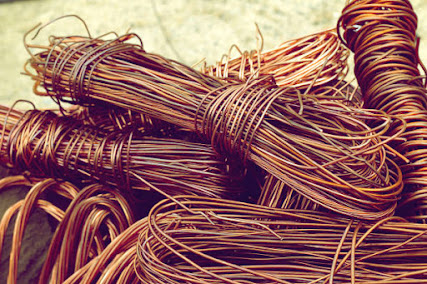10 Benefits of Scrap Copper Recycling
Scrap copper recycling is a vital process that offers a range of benefits, from environmental advantages to economic gains. As copper is an essential metal used in various applications, recycling scrap copper contributes significantly to sustainability and resource efficiency. Here are ten key benefits of scrap copper recycling:
1. Resource Conservation
Recycling scrap copper helps conserve natural resources by reducing the need for new copper extraction. Copper is a finite resource, and recycling allows for the reuse of existing copper, thereby extending the lifespan of this valuable metal and preserving natural reserves.
2. Energy Savings
The process of recycling copper requires significantly less energy compared to producing new copper from raw ore. Recycling copper can save up to 85% of the energy needed for primary production. This reduction in energy consumption lowers greenhouse gas emissions and helps mitigate climate change.
3. Reduction in Pollution
Copper recycling reduces the environmental impact associated with mining and smelting. By processing scrap copper, fewer pollutants are released into the air and water. This leads to cleaner air and water and minimizes the environmental footprint of copper production.
4. Economic Benefits
Recycling scrap copper has positive economic implications. The process is often more cost-effective than mining and processing new copper ore. Recycled copper typically costs less than virgin copper, leading to cost savings for manufacturers and consumers. Additionally, the recycling industry creates jobs and generates revenue, contributing to local and national economies.
5. Waste Reduction
Scrap copper recycling helps divert waste from landfills and reduces the volume of metal waste. Proper recycling ensures that copper-containing materials are repurposed rather than disposed of, contributing to more efficient waste management and reducing landfill space.
6. Resource Efficiency
Recycling copper is an efficient way to manage copper resources. The recycling process allows for the recovery of copper from various sources, including discarded electronics, electrical wiring, and plumbing fixtures. This efficient use of resources supports the circular economy and minimizes waste.
7. Preservation of Ecosystems
Mining and processing copper ore can lead to habitat destruction and ecological disruption. By recycling copper, the need for new mining operations is reduced, helping to preserve natural habitats and protect ecosystems from the adverse effects of mining activities.
8. Reduction in Greenhouse Gas Emissions
The energy savings associated with copper recycling translate into lower greenhouse gas emissions. By recycling copper rather than producing new copper from ore, the overall carbon footprint of copper production is reduced, contributing to climate change mitigation efforts.
9. Enhanced Product Quality
Recycled copper can meet or even exceed the quality of new copper. Advanced recycling technologies and quality control measures ensure that recycled copper is of high purity and suitable for use in various applications, including electrical wiring, plumbing, and industrial products.
10. Increased Recycling Infrastructure
The growth of the scrap copper recycling industry drives the development of recycling infrastructure and technologies. Investment in recycling facilities, sorting technologies, and processing methods enhances the efficiency and effectiveness of copper recycling, leading to improved recycling rates and environmental benefits.
Conclusion
Scrap copper recycling offers a multitude of benefits that extend beyond environmental conservation. From conserving resources and saving energy to reducing pollution and supporting the economy, the advantages of recycling scrap copper are significant. As the demand for copper continues to rise, the importance of recycling becomes increasingly clear. By embracing and advancing copper recycling practices, we can achieve a more sustainable and resource-efficient future.


.jpg)
.jpg)
Comments
Post a Comment